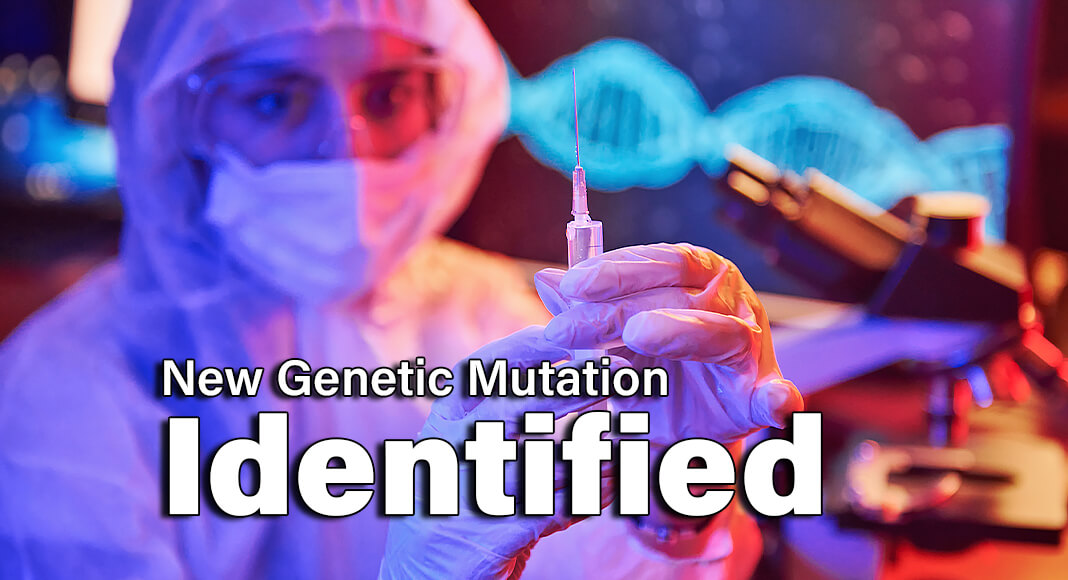
Mega Doctor News
By University of Chicago Medical Center
A team of researchers from the University of Chicago, in collaboration with the Free University of Brussels and the University of Washington, have uncovered a genetic mutation in a non-coding region of DNA that alters the regulation of the thyroid, leading to a rare form of congenital thyroid abnormality.
Lack or reduced thyroid hormone at birth occurs in 1 of 2,000 newborns and, if untreated, can lead to irreversible mental and growth impairment. Thyroid stimulating hormone (TSH), derived from the pituitary gland, controls formation of the thyroid hormone. Decreased thyroid hormone levels result in an increase of TSH. For this reason, measurement of TSH is routinely used to screen newborns for thyroid hormone deficiency, allowing for the early treatment and prevention of the serious consequences of the condition.
However, since the institution of TSH based screening in the early 1980s, instances of high TSH in the presence of normal thyroid hormone levels have been encountered. Individuals with this condition are said to have resistance to TSH or RTSH, but do not always have complications because of it.
RTSH has both a recessively inherited form and a dominantly inherited form. Prior research has uncovered the genetics behind the recessively inherited form. This current research identifies for the first time the genetics of the dominantly inherited form.
“This finding identifies a new physiologic mechanism for control or regulation of the thyroid,” said Samuel Refetoff, MD, Professor Emeritus in the Departments of Medicine, Pediatrics and Committee on Genetics, and corresponding author of the paper. “Once we have unraveled how this particular mechanism works, we will be able to add new knowledge about how the thyroid functions.”
The research was published May 7, 2024, in Nature Genetics. The journal also published a News & Views piece on the discovery.
A discovery decades in the making
The identification of this genetic mutation is a culmination of twenty-five years of work involving multiple laboratories around the world. Refetoff was on sabbatical leave in the laboratory of Professor and Co-author Gilbert Vassart of the Free University of Brussels when the first family with the dominantly inherited form of RTSH was identified in 1998. Four more families with the condition were found and information about them published in 2005.
The researchers then explored potential candidate genes for the condition. Co-author Helmut Grasberger, then a post doc in Refetoff’s lab and now a research assistant professor at the University of Michigan, was able to link it to an area on chromosome 15, a large piece of DNA with around 40 genes. But technology hindered the ability of the team to take their findings further until recently.
In this study, the researchers used whole genome sequencing and Sanger sequencing to examine the DNA of 12 unrelated families with the condition, pairing affected individuals with unaffected individuals to identify genetic differences on chromosome 15. They found noncoding mutations on a short tandem repeat (STR) to be the underlying cause of the condition in all 82 affected individuals.
Of note, mutations occur on primate-specific DNA known as the Alu retrotransposon and are also found in gorillas, which previous studies have shown present thyroid test abnormalities compatible with RTSH. Researchers theorize that this STR may have had a role in the healthy gestation of our evolutionary ancestors.
Furthermore, the team ran fiber-seq and RNA-seq studies on tissue from the enlarged thyroid gland of two individuals with RTSH. They discovered that the STR mutations activate a thyroid-specific “enhancer cluster” which upregulated the expression of MIR7-2 and MIR1179, two types of micro-RNA. Overexpression of these genes in the subjects’ thyroid epithelial cells might cause an imbalance in pathways controlled by these micro-RNAs. Now, the researchers plan to study how this produces the observed abnormalities in RTSH.
“It is common knowledge that less than 2% of DNA encodes for proteins and it was believed that the rest doesn’t really do anything,” said Refetoff. “I think this is an important reminder and good demonstration that there may be more to noncoding areas of DNA – that they, too, can have a function. I believe we will see this more and more as epigenomic techniques become routine in gene discovery and diagnostics.”
Additional authors on the paper include Alexandra M. Dumitrescu, Xiao-Hui Liao, and Monica Malheiros França of the University of Chicago; Roy E. Weiss, now at the University of Miami Miller School of Medicine; Theodora Pappa, Panudda Srichomkwun, and Kazumichi Onigata, who all worked on the project while at the University of Chicago; Rebecca Tagett of the University of Michigan; Elliott G. Swanson, Jane Ranchalis, Mitchell R. Vollger, Andrew B. Stergachis, Jessica X. Chong, and Michael J. Bamshad of the University of Washington; Junfeng Chen and Takashi Yoshimura of Nagoya University in Japan; and Phillip Hoffmann, Guillaume Smits, and Sabine Costagliola of the Free University of Brussels.
Support for the research was provided by the National Institutes of Health.











